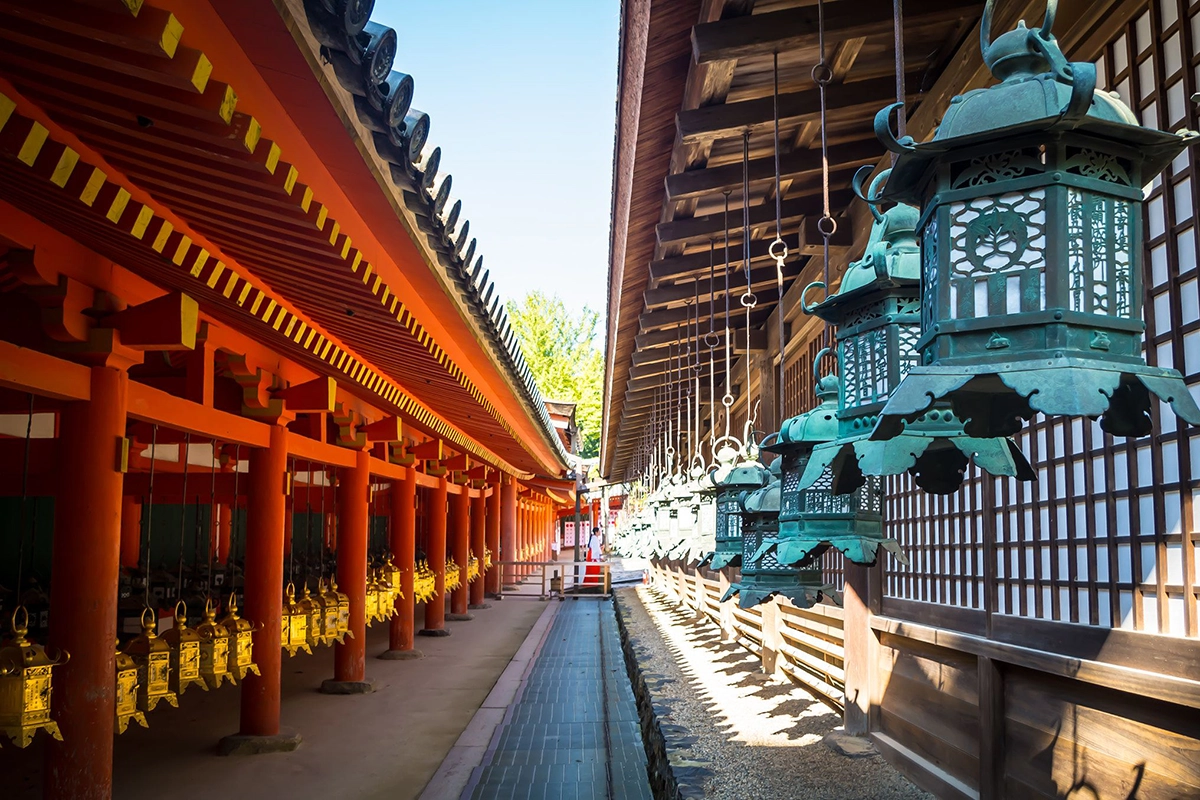Kasuga-taisha: Where Ancient Wisdom Meets Natural Harmony
Nestled in the heart of Nara, Japan, lies a sacred sanctuary that resonates with centuries of reverence and devotion. Kasuga-taisha, a Shinto shrine, stands as a living testament to the enduring spirit of a nation deeply connected to its history and spirituality. Established in 768 AD by the illustrious Fujiwara clan, one of Japan’s most influential families, this ethereal shrine encapsulates the essence of Japanese heritage and the allure of ancient wisdom.
Kasuga-taisha is an embodiment of the profound spiritual connection that the Japanese have with their past. This venerable shrine pays homage to four kami, Shinto deities, each representing the foundational principles of Kasuga-taisha. It has long been a hallowed pilgrimage site, drawing faithful adherents of Shintoism and travelers from far and wide seeking to immerse themselves in this sacred ambiance.
The shrine complex itself is a magnificent architectural marvel that transports visitors to a different era. It comprises various structures, including the main sanctuary, known as the Honden, which enshrines the revered kami, and the exquisite Treasure Hall, or Shosoin, which holds a captivating collection of artifacts and objects steeped in the history of Kasuga-taisha. The buildings showcase the quintessential Japanese architectural style, with their sloping roofs and intricately carved wooden beams, while their decor is adorned with fine detailing and ornate craftsmanship.
What truly sets Kasuga-taisha apart from other places of worship is its iconic avenue adorned with thousands of stone lanterns. Over the centuries, these lanterns have been lovingly donated by devout worshippers. These lanterns come to life in a mesmerizing spectacle during the annual lantern festivals held in February and August. Bathed in their warm glow, the shrine’s environs are transformed into an enchanting realm, a testament to the unwavering faith and dedication of the shrine’s followers.
Kasuga-taisha also plays host to another enchanting feature – its resident deer. Considered sacred in Shintoism, these graceful creatures are believed to be messengers of the gods. The deer roam freely within the shrine’s expansive grounds, creating a captivating atmosphere of harmony and natural beauty. Visitors can partake in this unique experience, offering special deer crackers available at the shrine’s entrance. The interaction with these gentle creatures is not only a cherished highlight for tourists but also adds a distinctive charm to the shrine.
In 1998, Kasuga-taisha earned the prestigious designation as a UNESCO World Heritage site, along with other historic sites in Nara. This recognition reflects the shrine’s profound cultural significance and its role in preserving traditional Japanese architecture and art. As one explores the intricate carvings, decorative elements, and the use of natural materials within the shrine, it becomes evident that Kasuga-taisha is a remarkable showcase of Japanese craftsmanship and design, serving as an enduring legacy for generations to come.
For those seeking an escape from the hustle and bustle of modern life and an opportunity to bask in the serenity of a bygone era, Kasuga-taisha offers a tranquil retreat that transcends time and space. Visitors can immerse themselves in the spiritual heart of Japan, walk in the footsteps of ancient pilgrims, and experience the enchantment of lantern-lit evenings alongside gentle deer. In this sacred oasis, Kasuga-taisha provides a bridge to Japan’s rich history and a harmonious coexistence of human devotion and nature’s beauty, making it a destination truly unlike any other.
